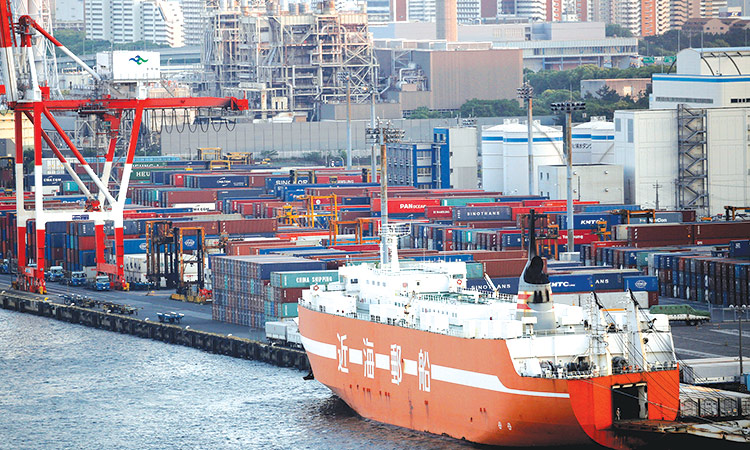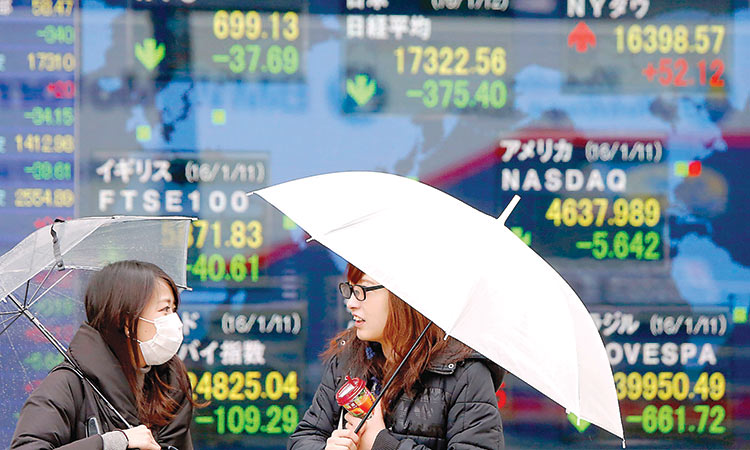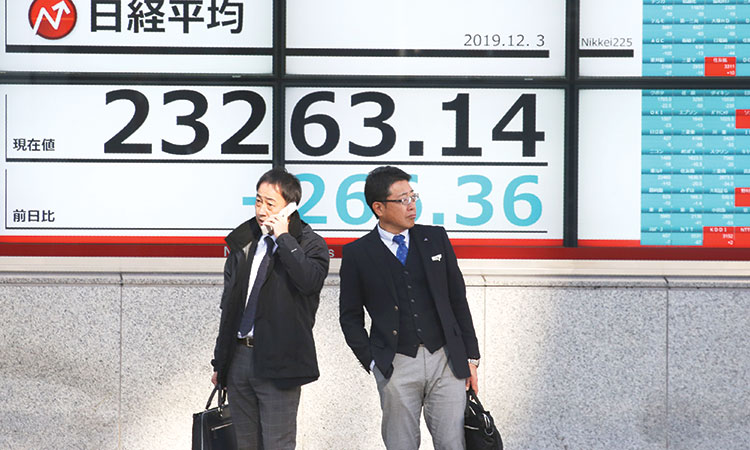Japan exports underwhelm in June, global weakness drags on economy

An industrial port is pictured in Tokyo, Japan. Reuters
The risk of a world recession amid monetary policy tightening since last year has cast a pall over export-led economies, with many countries including Japan relying on domestic consumption to underpin growth.
The trade data, released by the Ministry of Finance (MOF) on Thursday, showed exports rose 1.5 per cent year-on-year last month, below the 2.3 per cent gain expected by 15 economists in a Reuters poll, but faster than a 0.6 per cent rise in May.
It marked the first trade surplus since July 2021.
Exports were led by US-bound shipments of cars and mining machinery, while China-bound shipments of steel, chips and nonferrous metal caused a double-digit decline in overall exports to China.
“The effects of US and European rate hikes aimed at curbing demand and inflation will persist from now on, while the Chinese economy is struggling despite some stimulus steps, all of which deprive the global economy of a growth engine,” said Takeshi Minami, chief economist at Norinchukin Research Institute.
“Going forward, it could be hard for Japan to maintain a trade surplus in a stable manner unless exports regain strength and global commodity prices keep import costs low.”
Imports fell 12.9 per cent year-on-year in June, versus the median estimate for a 11.2 per cent decrease. The decline in the value of imports, caused by drops in crude, coal and liquefied natural gas, should help ease concerns about rising costs of purchases.
The overall trade numbers produced a trade surplus of 43 billion yen ($308.11 million), confounding the median estimate for a 90.1 billion yen deficit.
A weak yen and surging import costs have led to nearly two years of trade deficits in Japan, another challenge for policymakers hoping to shore up a fragile recovery following the end of COVID curbs.
By region, exports to China, Japan’s largest trading partner, fell 11 per cent year-on-year last month, due to drops in shipments of steel, chips and nonferrous metal, following a 3.4 per cent decline in May.
US-bound shipments, Japan’s major ally, rose 11.7 per cent year-on-year in June, led by shipments of cars, construction and mining machinery, following a 9.4 per cent rise in the previous month.
Meanwhile China’s exports to North Korea fell 6.6 per cent last month versus May, customs data shows, though they remained eight times higher than in June 2022 when the secretive state was reporting tens of thousands of COVID-19 cases per day and had shut its border.
The data set is erratic, with exports often increasing in value by as much as 200 per cent one month and falling by an equally dramatic amount in another. Chinese customs typically does not explain why trade with North Korea fluctuates so much.
Outbound shipments from the world’s second-largest economy to North Korea totalled $154.7 million last month, Chinese customs data showed.
Chinese exports were dominated by $19.9 billion worth of processed hair and wool for use in wigs, with North Korea buying almost three times more of that particular commodity than the second ranking item, which was $6.4 billion worth of rice, despite the isolated country’s long-standing issue with food security.
Diammonium hydrogen phosphate, a widely used fertiliser, which was among China’s top two exports to North Korea in May and April, dropped out of the top 10 in June.







